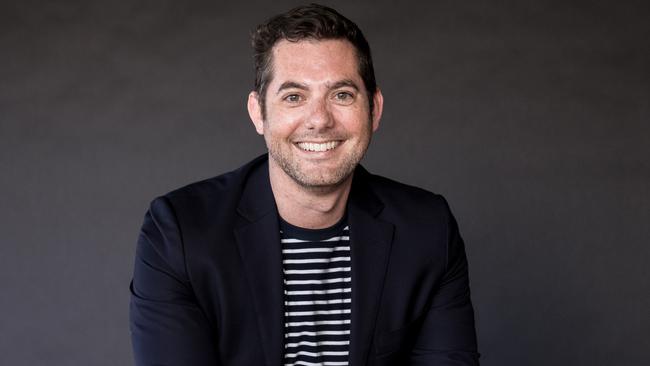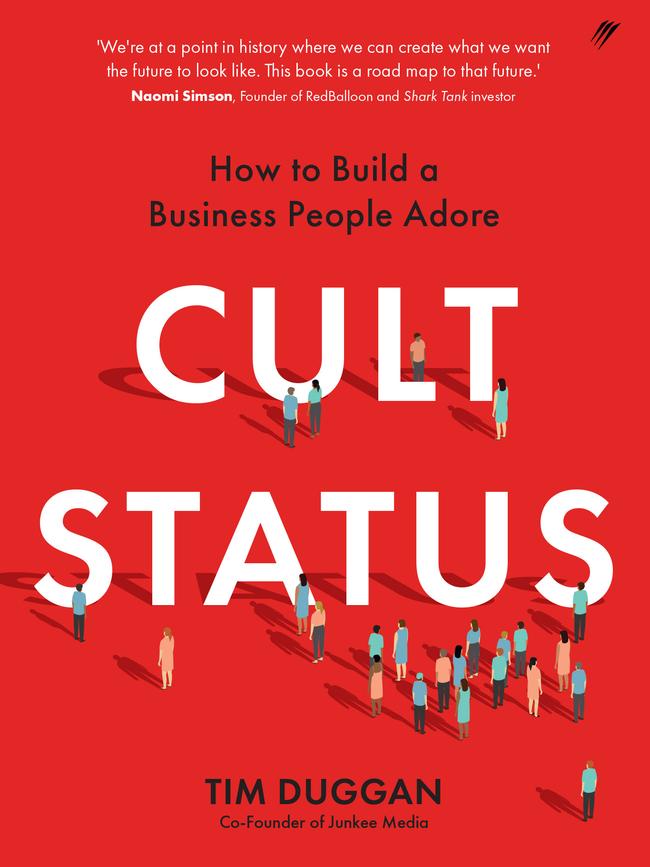Profit and passion drive millennials
Now for the entrepreneurs who want to make an impact as well as a buck.

Tim Duggan is a journalist and co-founder of digital company Junkee Media, where he is editor-at-large. His first book, Cult Status: How to Build a Business People Adore, argues there is a new generation of companies that will become as iconic as Nike, Apple or Red Bull. But the new brands will be very different in look and purpose.
You say we are going to have a new kind of firm. Why will they be different?
It feels like there is a new generation of entrepreneurs coming through who are thinking about business in a different way, and it’s because they have been crafted by the world around them, which has changed pretty rapidly from the world of their parents and grandparents. In my work we have studied millennials longer than they have been called millennials, when they were just called young people. We have tracked and watched as all of these changes have happened in real time and it feels like there is this new type of person coming out who wants to start a business, not just for the sole purpose of making money. They want to use the tools of business to be able to actually effect change or have some impact — as well as make money.
Is it real? Are the elements held in balance?
Yes, I definitely think it is real and it is a really interesting tension between making a buck and making an impact, and it’s that line I am trying to explore in the book, the tension between how can you actually go out there and make a business that turns a profit, that doesn’t go under. I ended up speaking to 40 or 50 people and they were all trying to balance that line.
Sometimes it can be a bit of a marketing buzzword to say we are trying to make the world a better place … and the difference is that a lot of the new-generation entrepreneurs are creating companies now with that intent at the start … a lot of companies that are older and bigger are trying to rework their existing infrastructure to add purpose into it and that is a lot harder to do. The (new companies) are baking this into the foundations.

Can they hold on to the idea?
Some of the companies are too young to answer that properly. In any generation there are going to be people who believe in it more fiercely than others. So when the wind is strong, there will be some people who forget what their purpose is in order to survive but there’s a huge tranche of people coming through like this. I name them “untrepreneurs” in the book, the basic idea being that they are undoing some of these old rules of business.
What do the new companies look like?
There is a whole litany of things that people can do. The first is figuring out what to do with the profits. Instead of assuming that all profits go back to the owners. There are a whole lot of new businesses coming through where anything from 1 per cent to 100 per cent of the profits are invested into doing some good in the world. The second way is really questioning whether bigger is always better. Can you build a business that is sustainable and have impact but you are not always aiming to get bigger and have more staff and more revenue? The third one is the concept of opaqueness in business: people are thinking, I will be transparent about my business, instead of assuming that the customer does not want to see anything behind the product. Instead this generation is explaining who made it, how it is made, what happens to the profits. It’s bringing the consumer along to the whole process of building something.
Why refer to them as companies that people will adore?
The more I looked at these types of companies I realised what they all had in common was a really strong community that was almost doing the work for the business owners. The community was the one evangelising about products, the community was the one telling other people they should buy the product, the community was the one giving feedback and the community was the one that surrounded them and helped them get through things like COVID. I landed on the idea that they had cult status; that is, they have a status among their customers of really passionate support … To have cult status it is not about the size of your audience, it is about the depth of their passion. You don’t need to have a million customers, you can have 100 customers who really love what you do and that might be enough.
Is this really a fringe element of capitalism?
No, I believe it is the future of work and business. I think everything starts at the fringes and becomes mainstream. Millennials are becoming the primary component of the workforce and moving into positions of power all over the world. One of the businesses with cult status is Airbnb. These companies will evolve in 20 years to become the Apples and Red Bulls of their time.
We have been here before, of course. Think of Fast Company during the dot.com boom and the idea that you could be rich and good.
In the book I look at a couple of things — the pioneers of this movement, Anita Roddick (founder of the Body Shop) and Yvon Chouinard (founder of Patagonia). I am saying that the idea of using business as a force for good is not completely new, but what is new is that for baby boomers it was a nice thing to do — wouldn’t it be nice if people did some good — but for millennials and Gen Z business has to do good because we are running out of time in terms of the environment and climate change, for example. What was originally a nice want in business has very quickly become a need for this generation.
What has COVID done to the hopes of even launching a business?
I wrote the book in the 12 months leading up to COVID. My first thought when COVID struck was that it would be out of date, dead on arrival. Then I spoke again to a lot of the entrepreneurs in the book and almost all of them, because they had built a strong community pre-COVID, what happened during COVID was that the community rallied around them and helped give them the best chance of surviving.
-
Cult Status: How to Build a Business That People Adore (Pantera Press, $32.99)




To join the conversation, please log in. Don't have an account? Register
Join the conversation, you are commenting as Logout